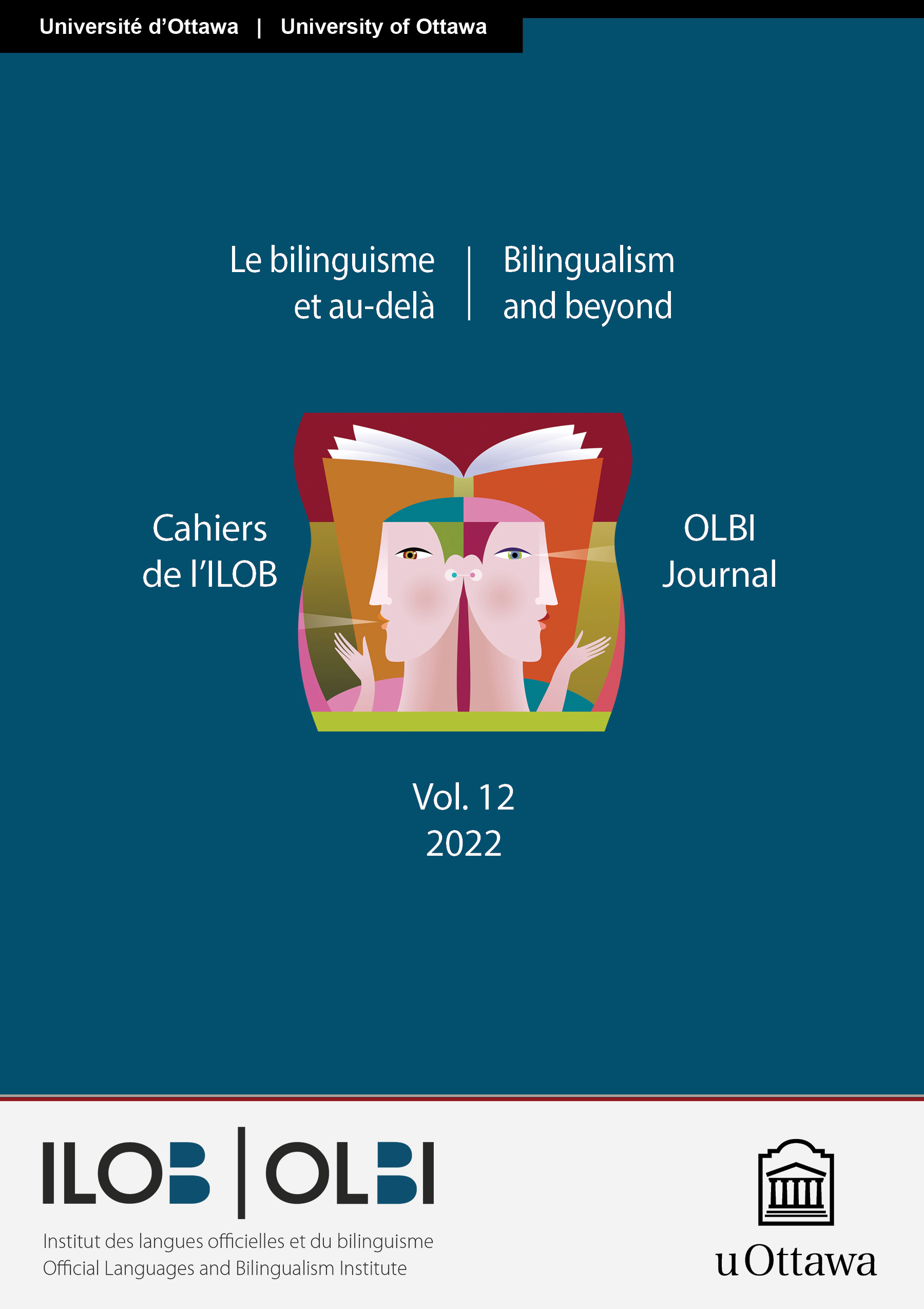Plurilingual or not plurilingual? Plurilingual competence and identity of Canadian EAL peers in a francophone post-secondary context
DOI:
https://doi.org/10.18192/olbij.v12i1.6075Keywords:
plurilingualism, plurilingual and pluricultural competence, plurilingual identity, English as an additional language, post-secondaryAbstract
Despite emergent research on Canadian additional language (AL) learners’ plurilingualism in post-secondary and officially monolingual school contexts, challenges persist in implementing plurilingual instruction: learners’ plurilingual identities (PI) and plurilingual and pluricultural competence (PPC) are often ignored in favour of the monolingual native speaker model. To help validate learners’ PPC and PI in AL classrooms, this article discusses parts of the results of a mixed-methods study pertaining to the self-perceived PPC and self-reported linguistic identities of adult English as AL student tutors and tutees (N = 20) in a francophone Montréal college. Data from a PI questionnaire, a PPC scale, and interviews reveal that: tutors tend to have higher PPC and identify as bi- or plurilingual; tutees tend to have lower PPC and identify as mono- or bilingual; a lower PPC level is directly related to identifying as monolingual; factors including AL competence level influence participants’ PI. Implications for AL education are discussed.
Downloads
Published
Issue
Section
License
Copyright (c) 2022 John Wayne dela Cruz

This work is licensed under a Creative Commons Attribution 4.0 International License.
Authors who publish with OLBI Journal agree to the following terms:
- Authors retain copyright and grant the OLBI Journal (OLBIJ) right of first publication with the work simultaneously licensed under a Creative Commons Attribution License that allows others to share the work with an acknowledgement of the work's authorship and initial publication in the OLBIJ.
- Authors are able to enter into separate, additional contractual arrangements for the non-exclusive distribution of the OLBIJ's published version of the work (e.g., post it to an institutional repository or publish it in a book), with an acknowledgement of its initial publication in the OLBIJ.
- Authors will not simultaneously submit the same piece of work for possible publication to more than one academic journal at a time.


